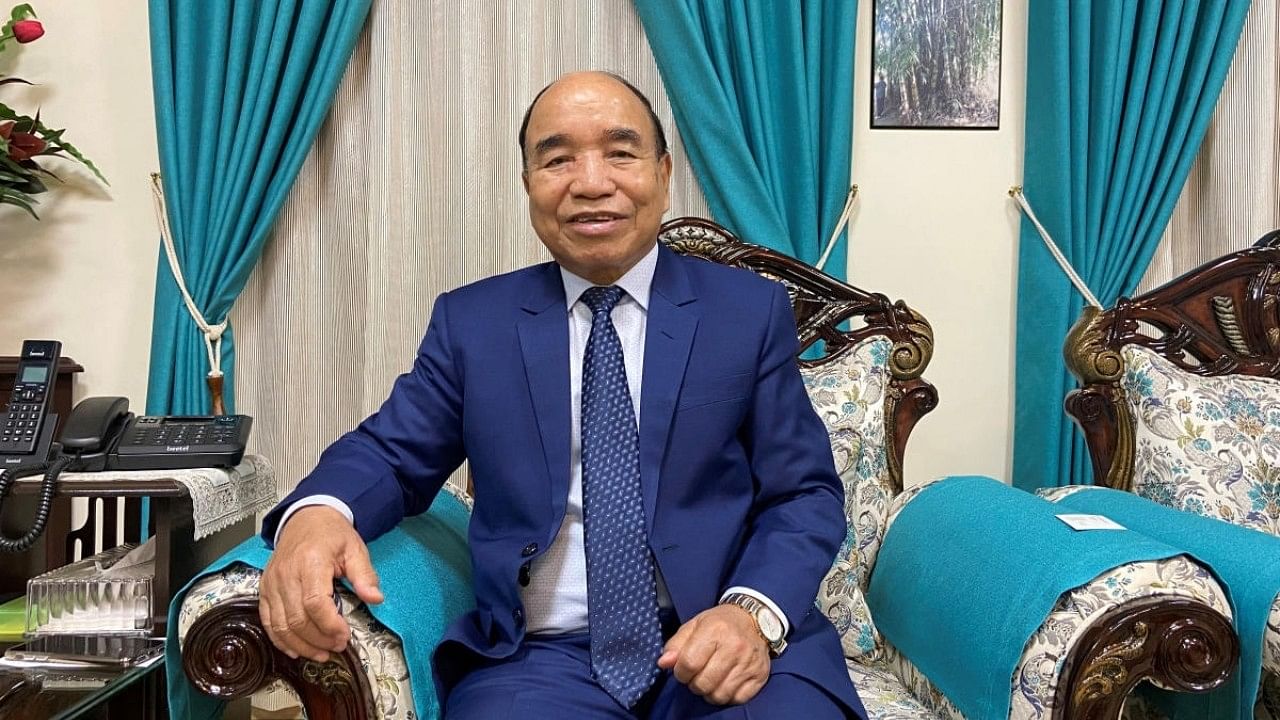
Mizoram Chief Minister Zoramthanga.
Credit: Reuters File Photo
Even before the Election Commission declared the schedule of the assembly polls in Mizoram and four other states, the ruling Mizo National Front (MNF) in Mizoram declared J Swama Vanchhawng as its candidate in Serchhip, one of the 40 constituencies in the tiny northeastern state. The polling is just about three weeks away, but Vanchhawng has not hit the campaign trail yet. “I am waiting for the church to assign officials who would accompany me during the campaign,” he told DH. The campaign for his formidable opponent, opposition leader and Zoram People’s Movement (ZPM) supremo, Lalduhoma, has not yet gained momentum either.
The EC of course conducts the elections in Mizoram, just as it does in the rest of the country. But it is the ‘dos and don’ts’ issued by the Mizoram People’s Forum (MPF) that the political parties and the candidates adhere to – perhaps more scrupulously than even the EC’s Model Code of Conduct.
The MPF is an umbrella body of the churches and the influential community organisations of Mizoram. It has already signed ‘agreements’ with all five political parties – MNF, ZPM, Congress, BJP and People's Conference – and prohibited door-to-door campaigns, public feasting, inducements and excessive use of campaign materials.
“We have to respect the churches and the public sentiments,” Vanchhawng, a former journalist who joined the MNF last year, said.
The MPF has also identified locations in every constituency where candidates of all parties would be called to interact with the voters. “The common platform allows the voters to know and speak to all the prospective MLAs together. The voters can also ask questions about the implementation of the promises made in the past,” Reverend Lalramliana Pachuau, the general secretary of MPF, said. The number of common platforms has been allotted as per the size and number of voters in each constituency. “We do all these to ensure a free, fair and peaceful election. Even after the elections, we keep watch on the winning party to make sure it delivers good governance”.
Unlike the rest of the country, the festival of democracy is a quiet affair in Mizoram, where a two-decade-long insurgency ended in 1986.
New equation
The assembly polls this year, for the first time since 1987, look like a straight fight between the ruling MNF and the opposition ZPM, another regional party, with the Congress being pushed to the margins. “The people are happy with our work and the stand we have taken for the Zo ethnic communities. The opposition parties have no ground to seek votes,” Chief Minister Zoramthanga said.
The 84-year-old MNF supremo has been projecting himself as the champion of Mizo nationalism. His government provided shelter to over 30,000 refugees of the Chin-Kuki-Zo communities, not only from conflict-hit Myanmar but also from Bangladesh. He even defied the Centre's directions to deport the refugees from Myanmar. The MNF government also provided shelter to over 12,000 Kuki-Zo people, who were displaced in the wake of the conflict in neighbouring Manipur. The party now hopes to reap the political dividends of what it did to help the people who share ethnic ties with the Mizos.
The ZPM chief Lalduhoma, however, said that not only the MNF but all political parties and civil society organisations of Mizoram adopted the same stand regarding the protection of the Zo communities of Manipur, Myanmar and Bangladesh.
Though the former chief minister, Lal Thanhawla, is no longer leading the Congress, some observers are not ready to write off the grand old party yet. “We still cannot ignore the political clout of the Congress. Some of the present leaders can turn the tide,” said Remruata Renthlai, a journalist based in Aizawl.
Women in politics
The women outnumber men in the electoral rolls in Mizoram, just as they do in Meghalaya, Nagaland and Manipur. The outgoing assembly however does not have a woman lawmaker. “There are many women who are doing well in public life, but they don't get the tickets from the parties dominated by men. This has been a concern in Mizoram for a long time. It would perhaps change only when the women's reservation law would be implemented (in 2029),” Lalneihzovi, a professor of public administration at Mizoram University, said. The ruling MNF, however, has given tickets to two women this time.